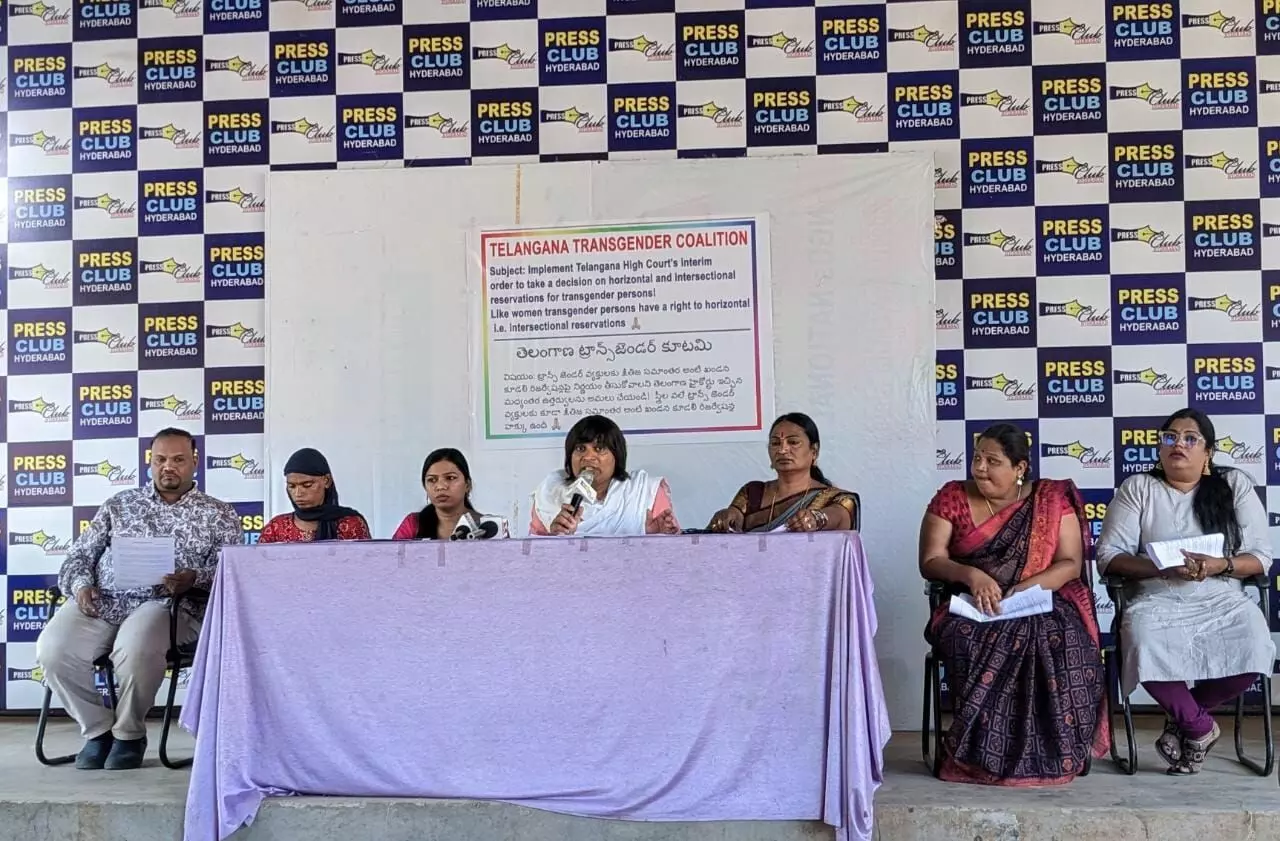Provide horizontal reservations: Transgender community in Telangana
Citing the specific issue of how transgender persons are left out of the Telangana State Level Police Recruitment Board (TSLPRB), they said it was unfair that transgender women were clubbed together with the category of men.
By Nimisha S Pradeep
Hyderabad: Telangana Transgender Coalition, a group of transgender people in Telangana, is demanding horizontal reservations for people belonging to the transgender community in the state. They said the failure to provide horizontal reservations for transgender persons is a violation of Article 14 and 16(1) of the Constitution and contrary to the judgement of the Supreme Court in NALSA vs Union of India case.
"Under every category, transgender persons must have horizontal reservations within the vertical reservations just like women who have horizontal reservations under every category of caste and Economically Weaker Sections (EWS)," said members of the community.
Citing the specific issue of how transgender persons are left out of the Telangana State Level Police Recruitment Board (TSLPRB), they said it was unfair that transgender women were clubbed together with the category of men. They added that even in the application form, there was no option for transgender persons in the gender category.
"Depriving transgender persons of relaxations and concessions offered to female candidates in physical endurance, efficiency, and measurements test is arbitrary, illegal, and unreasonable. Transgender women have undergone surgeries and asking them to run for 1,600 metres (like in the physical test for men) is unfair," said transgender activist Vyjayanti Vasanta Mogli.
She said that not just the police department, but all departments should follow horizontal reservations in recruitment. She also reminded that Justice Ronhinton Fali Nariman had said in 2018 that the government and the police department should be periodically sensitised in order to effectively implement the judgement decriminalising Section 377 of the Indian Penal Code.
Oruganti Laila, another transgender activist in the state, said that despite education, transgender people are not able to lead respectable lives. "In Telangana, there are 48,000 transgenders, among which 40% are educated. We have kids who have pursued PhD and technical courses in our current generation. We are looking for a respectable way of living, which the government should provide. A majority of us are away from our families, rejected by them. If the government of Telangana can provide us employment opportunities, we would no longer have to work in low income jobs, and can have equal importance as given to for every male and female," said Laila.
A group of transgender people had filed a writ petition in the High Court of Telangana regarding this discrimination against transgender persons in public employment opportunities in 2022 citing the example of TSLPRB recruitment. On 29 December, the Telangana High Court passed an interim order directing the TSLPRB to take cognizance of the observations of the court and submit a response within a period of two weeks. But the transgender applicants are yet to hear from the state police recruitment board.
NALSA vs Union of India, 2014
This case was filed by the National Legal Services Authority of India (NALSA) to legally recognise persons who fall outside the male/female gender binary, including persons who identify as "third gender." This was a landmark decision where the apex court legally recognised "third gender" and transgender persons for the first time. The court recognised that third gender persons were entitled to fundamental rights under the Constitution of India. Further, it directed state governments to develop mechanisms to realise the rights of "third gender" and transgender persons.